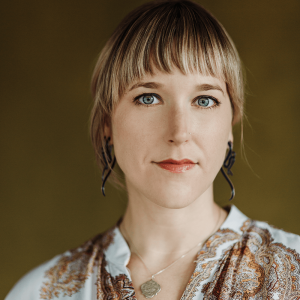Microdosing, a Placebo Effect
April 20/2021
by Françoise Makanda, Communications Officer at DLSPH
A recent study found that microdosing psychedelic drugs had beneficial psychological effects – but so did a placebo. That might seem like a dose of cold water for this promising area of mental health treatment, but DLSPH Adjunct Prof. Dr. Dominique Morisano sees it differently.
“What we’re not talking about is the impact of the placebo,” says Morisano, who is also a clinical psychologist. “How cool is it that the placebo effect can elicit these same benefits? How cool is it that our brain alone can make us feel better? I think it’s fascinating.”
Consumption of psychedelic drugs is illegal in Canada, but researchers all over the world are looking at its effects at a “macro” level as it intersects with professional therapy. Morisano started working in the field of psychedelic-assisted therapies and research in early 2019, after returning to school at the California Institute of Integral Studies to complete a Certificate in this area of study.
She says the field is growing, with an increase in controlled studies but needs more funding and research. “We don’t know enough about how microdosing affects people with different conditions or medications,” she says. Most of the research is done with higher doses. She also notes that research is still out on the long-term effects of prolonged microdosing on overall physical health.
Morisano posits that microdosing might be seen as an easy treatment for depression and anxiety. Therapy works, she says, but it can take a long time for a breakthrough and the costs can add up.
“We’re always going to be trying to find different ways of increasing the amount of time that people can spend feeling well. We want more of that — so anything that poses a potential, that kind of shines, people are going to be excited about it,” Morisano adds.
Meditation fell into the same category when it made its way to the mainstream some years ago. But meditation can’t fix everything, she says, and it’s work. “You actually need to take the time to sit and be still, quietly, and do this daily. Change doesn’t happen overnight. You have to be there with your thoughts. It’s hard.”
With the pandemic, mental health issues are top of mind. For those who can’t find one-on-one therapy, there are still ways to address the inner self. What the psychedelic-placebo study has revealed is that this catalyst for change can be triggered within us, says Morisano.
“Many people are afraid to face their inner selves. They’re afraid to get at what is really going on inside and learn about themselves. Long term meditation can accomplish remarkably similar impacts, but in a greater timeframe. The same goes with prayer, art, music, creative writing and walking in nature.”
She also suggests journaling or the Pennebaker technique. Her clients use expressive free-writing to purge their feelings regarding past traumas or difficult relationships for 20-30 minutes over a series of 3 to 5 days, and come up with realizations or revisit old memories to gain new insights. Two weeks later, they feel lighter. Artistic expression can act in the same way. She encourages people to work with a professional to integrate the findings they gain from these activities.
Morisano’s interest in psychedelics as a potential catalyst for addictive behaviour and mental health issues began with her work as an addiction researcher. She is looking forward to hosting a related upcoming conference in May 2022 – a global summit on psychedelic assisted therapy and medicine in Toronto. The conference is sponsored by the Centre for Addiction and Mental Health (CAMH), the Mental Health Commission of Canada (MHCC), and the Canadian Centre on Substance Use and Addiction (CCSA), and its advisory committee includes government representatives from Health Canada and the FDA.
For now, she would advise practicing self-kindness and realism. “Everyone is having a tough time right now. Try to relax a little bit and understand that some dreams and goals aren’t necessarily going to be accomplished right now…and that that’s ok.”
